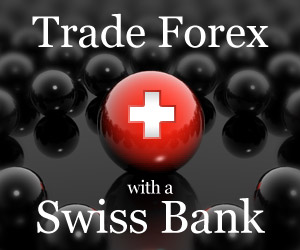Futures Options Trading - Basics Explained
When it comes to trading derivatives, futures options trading is the most common way. These instruments can be used for hedge or speculative purposes.
First, let's start this article with the definition of futures and options and find out what is the main difference between both. Future is a contract in which two parties agree to exchange physical commodity or a set of financial instruments on an exact future date at a particular price. The agreement is obligatory for both parties. Options on the other side give the buyer the right to buy or sell the underlying asset at a particular price on or before determined future date. The emphasis is on the right, not obligation for the buyer of the option to act. Both futures options trading is understood as derivative trading, since the price of both instruments derives its value from its underlying asset, which is most of the time a commodity in case of futures, and stock or index in case of options.
Example of Futures Trading
The reason for the futures market to be established in the past was related to farmers and commodities. It is very clear that farming is a very seasonal job and this is where the problem originated. When farmers grew their crops and brought them to the market, current supply often exceeded the demand heavily, pushing the price of crops down and leaving farmers with unsold crops. On the other side, in the of-season time, these same crops were hard to get; demand exceeded supply and pushed the prices of the crops to the sky, because the crop was no longer available. To balance the market, central marketplaces were established where farmers could sell their commodities for immediate delivery (spot contract) or forward delivery (forward or future contract). This way the farmers were prevented from losing crops and profit, while the prices of the crops stabilize in the off-season. Today you can trade futures not only on agricultural commodities, but also financial instruments like bonds, currencies and securities.
Example of Options Trading
Now let's have a look at an options example in the real life. Suppose you would like to buy a car and somehow it happens that a neighbor from the street is selling one just of your tastes. The problem is that the price of the car is $20,000 and you just don't have the money in your pocket right now. You go to your neighbor and tell him that you will probably buy a car, but only after three months time, when you expect your bank to release one of your saving schemes. Since 'probably' is not obligatory type of agreement, your neighbor would like you to pay him $1,000 as a security for him, in case you change your mind; the problem for the neighbor is that he will not be able to sell the car for three months, since he has promised to sell it to you, if you will finally decide to buy it. Just before the three months period has ended you get the money from the bank and now you have to decide, to buy a car or not. Your decision will be based on what has changed in these three months time. If for example car sellers just went out with big selloff of their new models (same car, new model) with very attractive prices and paying possibilities and you suddenly can get a new car, new model for the same price as you can get the old car, old model from your neighbor, you will probably step away from the contract with your neighbor and not exercise the option you had. Of course, you will lose the $1,000 already paid to your neighbor. On the other side it might happen, that producer of the car your neighbor has, has decided to stop the production of these models globally, which means that this same car, which has a special status among special group of people, will become an old-timer one day; it may actually happen very soon. Because of this fact the prices of old cares of the same model has grown significantly on the market and you will be more than happy to exercise the option you have to buy this car for 'only' $20,000, while the normal price is currently around $25,000. Even if you sell the car immediately, you can make a profit of $5,000.
Futures Options Trading Conclusion

While original futures and options contracts were established with the purpose of real physical delivery when the contract elapsed, this is often not the case nowadays. People use both types of contract to either hedge risk or they speculate on price movement of underlings, but most of these agreements have financial effect only, without delivery of large inventories of physical goods from one party to the other. That is why futures options trading is not only in domain of producers and consumers, but also speculators play a great role in this market.
Both futures and options markets are very liquid, meaning they face high trading volumes every day (check the CBOE.com. Even if both derivative instruments are not suitable for risk averse traders or investors and are complex by nature, they are primary instruments for managing price risks. Both instruments can be very useful for a wide range of people, but first you have to learn basics about these instruments, how both markets work, what characteristics these instruments have, which strategies you can use to trade them and more. With sufficient knowledge even complex things become simple and that is what we would like to achieve with the articles we publish and are related to this topic. Enjoy reading further about futures options trading.
Written by: Goran Dolenc
Do you find this content useful? Like! Tweet! Recommend! Share!
Where To Go Next?
Introduction to Emini Trading - Advantages and Risks
When it comes to trading derivatives, emini trading is definitely among the most popular trading strategies because of many advantages it carries.
Back from Futures Options Trading to Best Online Trading Site for Beginners home page







